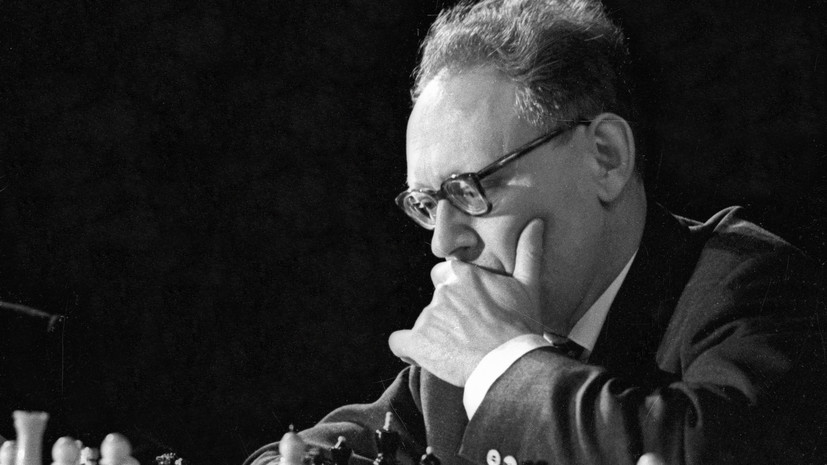The son of a dental technician from Kuokkala
The future sixth world champion and the first holder of this title from the USSR was born on August 17, 1911 in the summer village of Kuokkala near St. Petersburg in the Jewish family of dental technician Moses Botvinnik and dentist Shifra Rabinovich. Michael attended music school and was fond of photography. Once a book about gymnastics fell into Botvinnik’s hands. Since then, he has been actively interested in this sport. At the age of 12, Misha mastered the game of chess and began to study specialized literature.
It was with Botvinnik that the era of dominance of Soviet chess began: over the next half century among foreigners, only the American Bobby Fischer managed to take over the champion crown for a couple of years.
At age 14, Botvinnik defeated Capablanca
In 1925, the 1st Moscow International Chess Tournament was held in the "Fountain Hall" of the Second House of Soviets (now the Metropol Hotel). Among the invited grandmasters was, among others, the third world champion Jose Raul Capablanca.
On one of the free days, the Cuban arrived in Leningrad and gave a session of simultaneous play on 30 boards. Among his rivals was Botvinnik, who was learning to play according to Capablanca’s book “The Basics of a Chess Game” and idolized his idol. A 14-year-old boy managed to get the master to surrender. At that moment, Botvinnik was noticed in the chess world.
Since the mid-1930s Botvinnik has firmly entered the world chess elite. In 1935, he shared 1-2 places with Salomon Flor from Czechoslovakia at the 2nd Moscow International Chess Tournament, ahead of Capablanca and second world champion Emanuel Lasker. And in 1936 in Nottingham, along with Capablanca, Botvinnik beat all the strongest chess players on the planet. In Moscow, the triumph was greeted as a hero.
The following year, Botvinnik brilliantly won the game against Capablanca and the reigning world champion Alexander Alekhine. They were united a lot: the rising star could be considered the theoretical follower of the Russian emigrant. Success in the international arena gave Botvinnik reason to negotiate with Alekhine about the world championship match. The champion agreed, but World War II interfered. Only on March 23, 1946, the FIDE executive committee officially decided to hold the match. And on the morning of March 24, Alekhine was found dead in his hotel room. He sat in a chair by the table with chess set in the initial position. According to the official version, the cause of death was asphyxiation resulting from a piece of meat entering the respiratory tract.
In 1948, the orphaned chess crown was contested in a special match tournament by the five strongest chess players in the world. In Holland, Botvinnik behaved independently and lived in a hotel separate from the rest of the delegation. One of the main contenders believed that the USSR Chess Federation was opposed to it. Nevertheless, he confidently won almost all the games and, having outstripped Vasily Smyslov, the runner-up by three points, he became the sixth champion in history. With interruptions, he wore this honorary title for 13 years. Shortly the title was taken away from him by Smyslov and Mikhail Tal.
Botvinnik left a positive mark in the history of his sport. He was remembered as a mathematician, monogamous and just a decent person who did not participate in scandals and intrigues. He founded and steadily led his own school for children.
What did the rivals say about him
The representative of the next generation, Tigran Petrosyan, noted in 1958: “Botvinnik, who has been the leader of Soviet chess players for 25 years, is a good example for everyone. For older chess players, he is an example of sports longevity. Young chess players can learn from him self-criticism, the ability to improve, not being satisfied with what has been achieved. But in general, Botvinnik showed that hard work, perseverance in achieving the goal, the will to win lead to the heights of achievements. ”
Fighting with Botvinnik for the chess crown in 1951, David Bronstein, in turn, said: “He played like a bulldozer: he walked in the center, and his rivals could not withstand this strength of his mental stress, his energy. They could not stand the accuracy of his game - as if he didn’t move the pieces, but he drove nails into the board! ”
In 1963, the completely young Botvinnik lost the championship match to Petrosyan. After this failure, he decided to no longer participate in the struggle for world championship. In addition, FIDE banned revenge. Nevertheless, until 1970 Botvinnik continued to actively participate in chess life. He won and became the winner of prestigious tournaments, took part in the creation of computer algorithms for a chess game. And through his school passed, including Anatoly Karpov and Garry Kasparov. For half a century, Botvinnik played 1202 games in various competitions, in which he won 610 victories and made 453 draws, winning 33 out of 59 tournaments.
Until recent days, Botvinnik worked in a club on Gogolevsky Boulevard, which now bears his name. On May 5, 1995, the great athlete died in his Moscow apartment on Frunze Embankment from pancreatic cancer.

